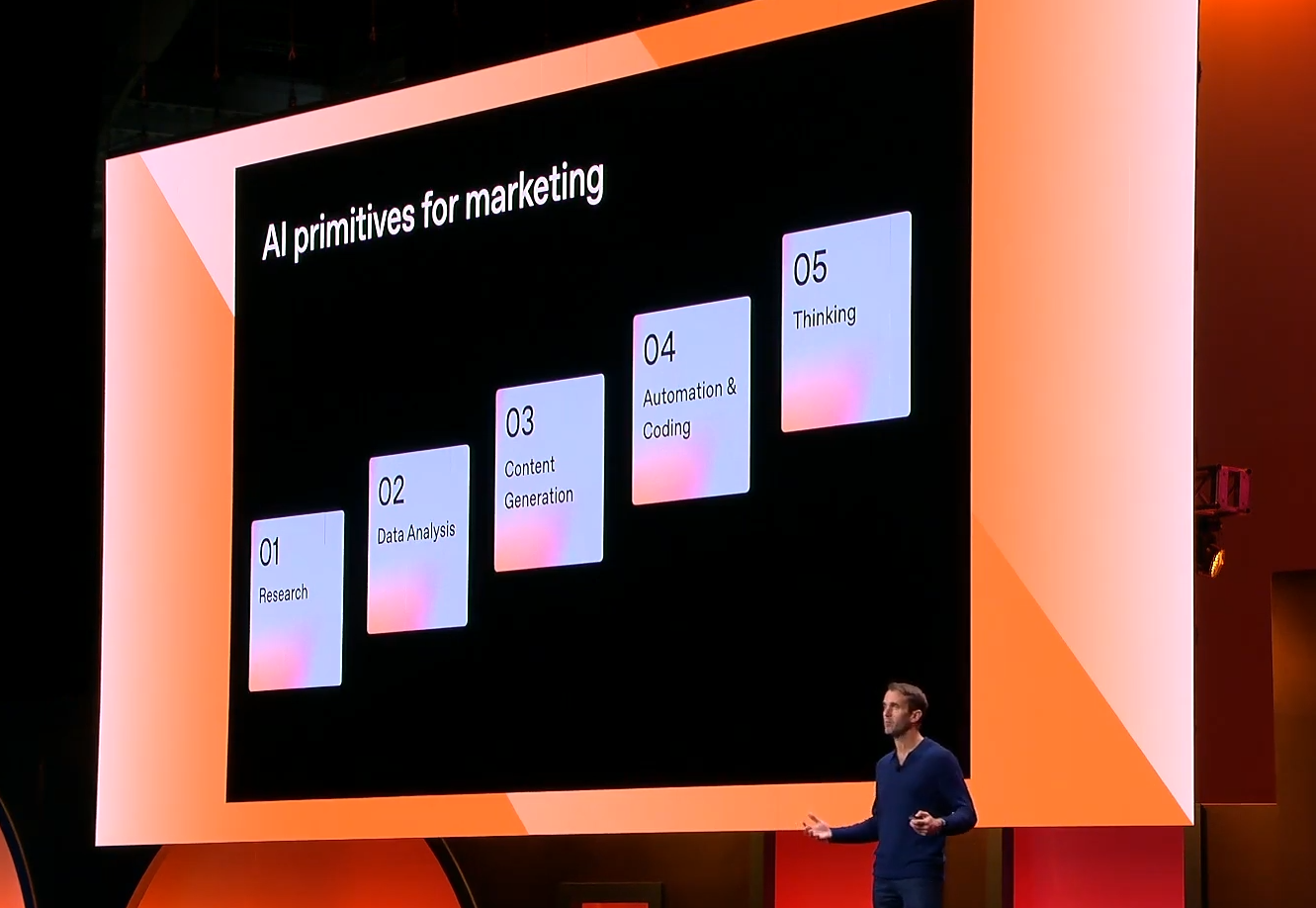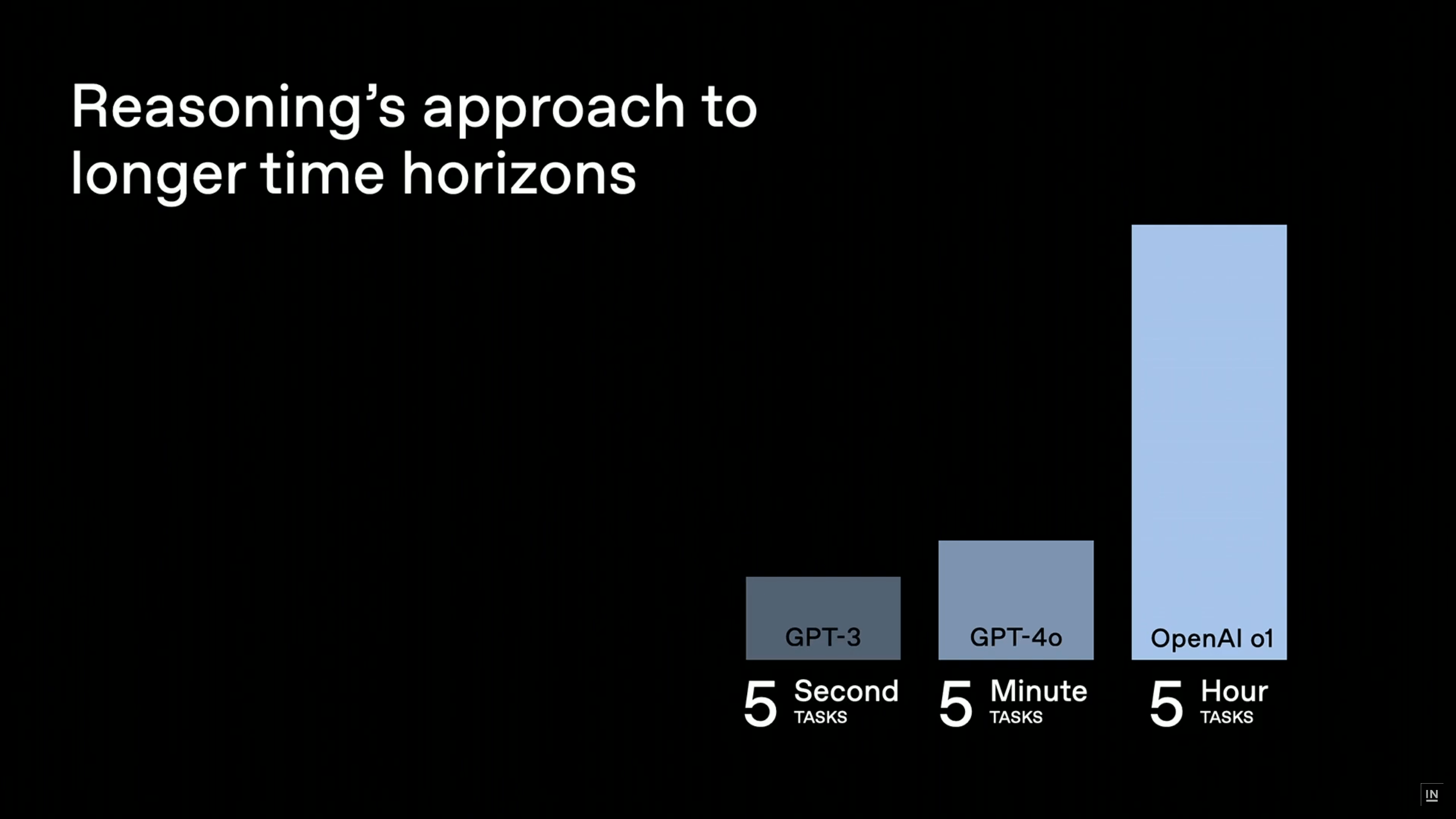OpenAI's marketing chief says o1 can handle 5-hour tasks

At Hubspot's Inbound event, Dane Vahey, Head of Strategic Marketing at OpenAI, outlined the AI skills marketers need to master to reap the full benefits of AI.
Vahey argues that AI is becoming increasingly important as marketing tasks become more complex, and professionals need to achieve the same results with lower acquisition costs and fewer resources.
While many companies are already using AI for marketing, particularly in content creation, Vahey believes marketers should develop a broader set of AI skills. These include research, data analysis, content generation, automation, programming, and AI-supported thinking.
AI as a multipurpose marketing tool
Vahey highlighted several ways AI can serve as a versatile marketing tool. AI-supported research tools like OpenAI's "SearchGPT" can quickly find and summarize relevant information. AI models can analyze data to identify patterns, develop strategies, and uncover blind spots.
In content generation, multimodal AI models enable the rapid creation of diverse content types including text, images, and speech. AI can also act as a "thinking partner" to help brainstorm and challenge ideas.
The falling cost of AI models is opening up new opportunities for integration into products and processes, Vahey said. He cited an example of how OpenAI uses natural language processing to automatically score and route leads from website form submissions.
From Five-Second to Five-Hour Tasks
According to Vahey, GPT-3 excelled at quick, five-second tasks such as answering simple questions. GPT-4o can handle more complex, five-minute tasks, such as summarizing longer texts. The latest model, o1, is capable of tackling problems that take up to five hours, such as developing detailed strategies, Vahey claims.

For marketers, this evolution means that AI can be applied to an expanding range of tasks. Vahey sees AI as an indispensable tool for the industry as the models' capabilities continue to grow.
Early tests indicate that o1 outperforms other language models in terms of planning performance, but it is still prone to errors. The researchers tested o1-preview, not the final o1 model Vahey referred to, which will be released at a later date.
AI News Without the Hype – Curated by Humans
As a THE DECODER subscriber, you get ad-free reading, our weekly AI newsletter, the exclusive "AI Radar" Frontier Report 6× per year, access to comments, and our complete archive.
Subscribe nowAI news without the hype
Curated by humans.
- Over 20 percent launch discount.
- Read without distractions – no Google ads.
- Access to comments and community discussions.
- Weekly AI newsletter.
- 6 times a year: “AI Radar” – deep dives on key AI topics.
- Up to 25 % off on KI Pro online events.
- Access to our full ten-year archive.
- Get the latest AI news from The Decoder.